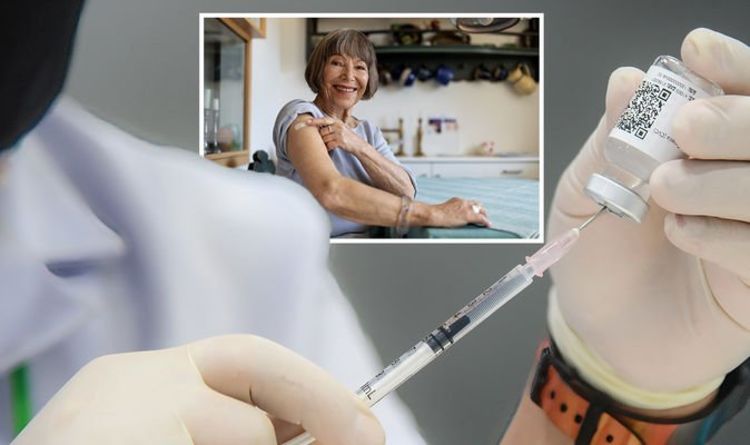Third dose of AstraZeneca Covid vaccine after six months enhances immune response – study

The UK appears to be over the worst of the coronavirus pandemic now, with broad swathes of the population now vaccinated and evidence suggesting that two shots of a coronavirus vaccine mounts an effective immune response against the highly transmissible Delta variant. However, long-term immunity conferred from the vaccines remains unknown and the spectre of new variants will continue to bedevil society. Amid this uncertainty, a new study makes a strong case for giving people a third dose of the AstraZeneca vaccine.
An Oxford University study found that giving people a third dose more than six months after their second led to a substantial rise in antibodies and increased the body’s T-cell ability to fight coronavirus, including its variants.
Professor Sir Andrew Pollard, head of the Oxford Vaccine Group, said it is not yet known whether people will need a booster shot in the autumn but the new data suggests administering the existing vaccine could be effective.
He said real-world data from Public Health England (PHE) has already shown that two doses offer good protection against hospital admission and death from the Alpha Kent variant and the Delta variant first identified in India.
With two doses currently preventing more than 90 percent of hospital admissions with Covid, he said it is “difficult to say” conclusively whether a third dose could add a few more percent.
READ MORE: The four most common coronavirus symptoms showing up in people fully vaccinated
But he added: “Boosters are much more about if protection gets lost over time – and we don’t know that – but if it does, could you boost? And the answer to that from these data is yes, you could.
“There’s no indication today that we need boosters, and it is something where we need to keep looking at the data and make decisions as the months go by, about whether that protection that we have is lost.”
He noted that experts will “expect to see immunity start to wane over time because that does happen” but it will not go back “down to zero”.
He added: “Our immune systems are a bit too clever for us to just look at those numbers… the immune system remembers that we’ve been vaccinated and so, even if we meet the virus some months later, the immune system remembers it, will kick in and make stronger immune responses again and hopefully that will protect most people from severe disease.
DON’T MISS
Pfizer vaccine: Three delayed side effects [INSIGHT]
High blood pressure: Sign in mouth [TIPS]
Pfizer vaccine: Four new side effects [ADVICE]
“So that’s why I say we just have to watch at the moment to make those decisions (on whether boosters are needed), based on the best evidence as it emerges.”
Teresa Lambe, associate professor at the Jenner Institute at Oxford, said that, regarding antibody responses with a third dose, “we were able to push them up to a level that we saw at the peak of the response after the second dose”.
She added: “This is very encouraging because we’ve already demonstrated that two doses of (the vaccine) is both efficacious and effective in the real world.
“We also saw an increase in the neutralising antibodies against a number of variants, so we were able to demonstrate increased neutralising antibodies with a third dose against Alpha, Beta and Delta.”
The Beta variant is the one first identified in South Africa that has been worrying scientists due to its ability to undermine some of the effectiveness of the current vaccines.
Prof Lambe added: “Here we show that a third dose of (the vaccine) is well-tolerated and significantly boosts the antibody response. This is very encouraging news, if we find that a third dose is needed.”
How did the researchers gather their findings?
In the preprint study, which has yet to be peer-reviewed, some 90 people received a third dose of the vaccine, which was well-tolerated in terms of side-effects.
The study also found that a longer delay of up to 45 weeks between the first and second dose of the Oxford/AstraZeneca vaccine leads to enhanced immune response.
The experts said this is an important finding for countries with limited vaccine supply.
Prof Pollard said the findings should come as “reassuring news to countries with lower supplies of the vaccine, who may be concerned about delays in providing second doses to their populations”.
He added: “There is an excellent response to a second dose, even after a 10-month delay from the first.”
The findings come after AstraZeneca and the University of Oxford began new clinical trials on Sunday to test a modified vaccine against the Beta variant.





